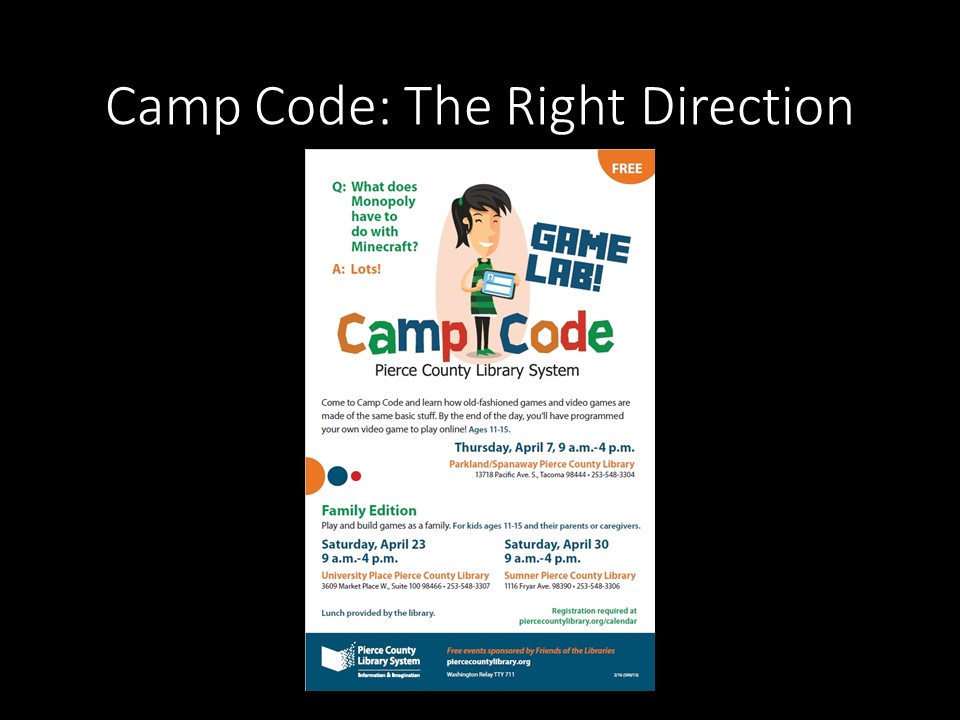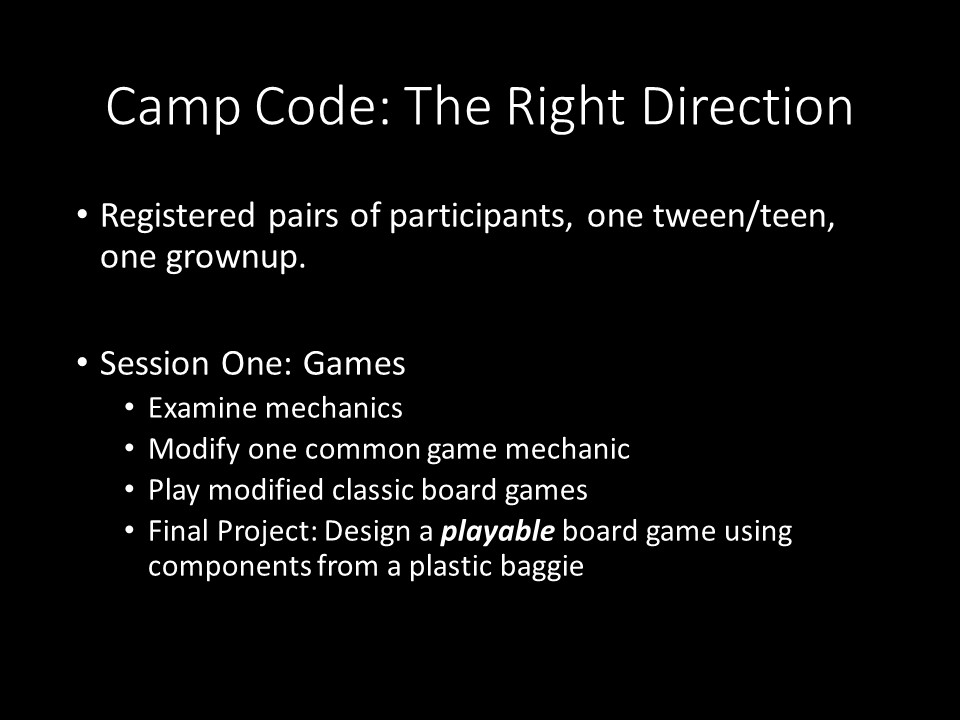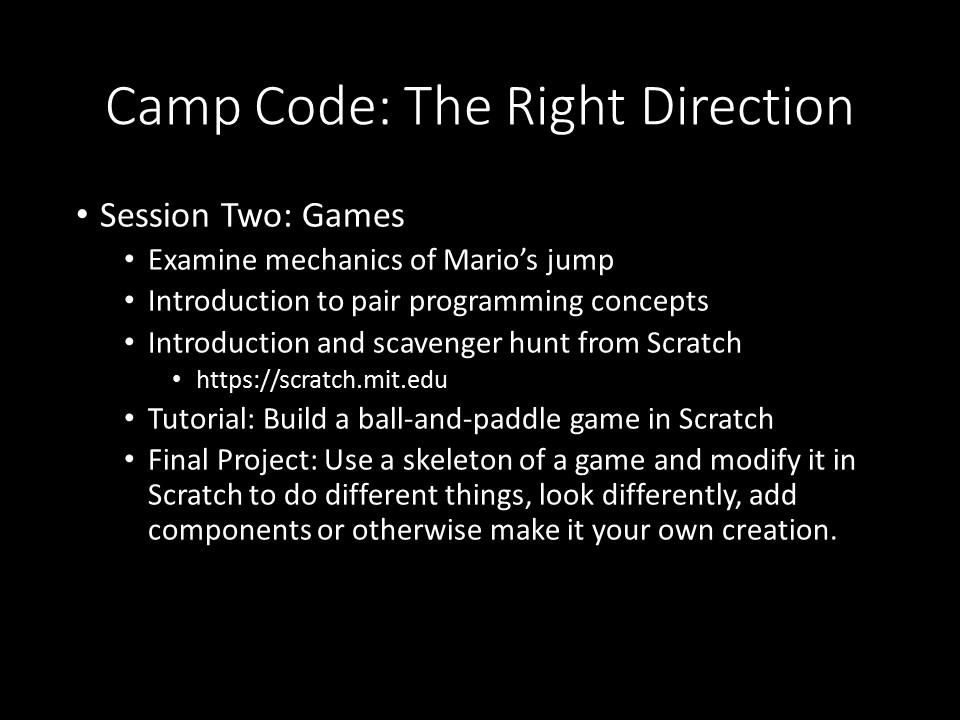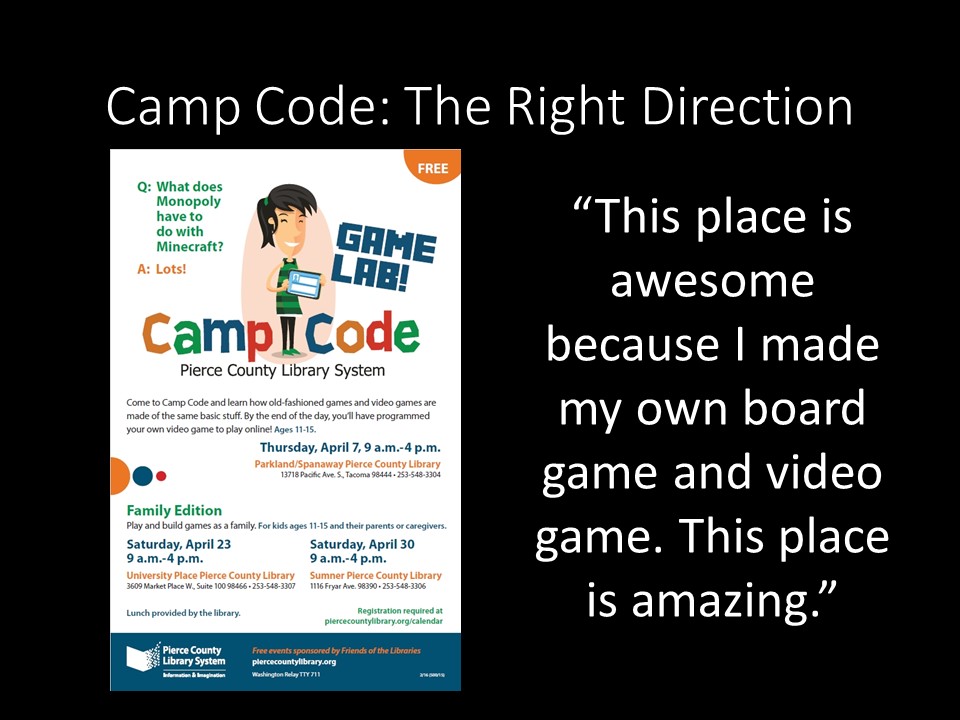Camp Code: The Right Direction


An example that's going in the right direction is a recent program developed at Pierce County Library System - Camp Code: Game Lab. Designed to either be done as two sessions or a one-day intensive, Camp Code takes people with varying skill levels through concepts of programming and game design. Registrants are usually in pairs of one tween or teenager and their grownup. The first session explains various components of a game, then invites the participants to modify familiar games, adding or changing components about them and see how they play differently, before culminating in an exercise to design a playable game using components provided in a plastic baggie. Depending on the inclination of the designers, all sorts of tabletop games are possible from the component kit. By the end of the first session, everyone participating can say they have designed a game and played the games that others have designed. They're often pretty rough, since they have to design the game using a limited number of components within a short time frame, but by emphasising playability as a goal, the focus of the designers doesn't get lost in mythology, backstory, or other components that can be thought of later and added on.

The second session of Camp Code is when the participants actually get to touch computers - after a short video about the impact of the mechanic of Mario jumping first introduced into Super Mario Brothers, a short orientation and explanation of the various components of Scratch, developed by the Lifelong Kindergarten Group at the MIT Media Lab, and a short tutorial about pair programming and the driver/navigator concept, the participants are turned loose on a scavenger hunt to find various components and programming snippets that will accomplish tasks on screen, introducing them to the various menus and blocks of Scratch. Once the scavenger hunt is over, the participants go through a specific tutorial building a paddle-and-ball game, learning a few new and interesting bricks and their effects, before getting to choose between three different types of starter programs to go and play with, building new elements in, analyzing the elements that are already there, and changing elements to suit their own purposes. In this last session, the facilitators are on hand to help with sticky situations or to try and explain useful concepts to the participants, but the creativity of the participants really shines through in being able to build off an already-established structure of work. For example, in this session, one of the participants was trying to understand the nature of how games make movement work, and being able to provide a key insight about scrolling (character stays still, scenery moves) and map tiles (teleport character from right side of current map tile to left side of new map tile) opened up possibilities in that designer's mind.

Here's their review of the program: "This place is awesome because I made my own board game and video game. This place is amazing." That's what we're looking for in libraries.
Lacking the knowledge of how to accomplish this, though, might have made the review a little less awesome, or it could have turned it entirely - "This was a cool program, but the people who were there couldn't answer my questions." Which makes them less likely to come back for another program, or to ask us about questions that we might be able to solve, or to see if we offer resources that might further them on their journey. Without the right tools for the job, the public library loses out on the opportunity to help inspire someone's dreams or to help them continue to make progress toward them.